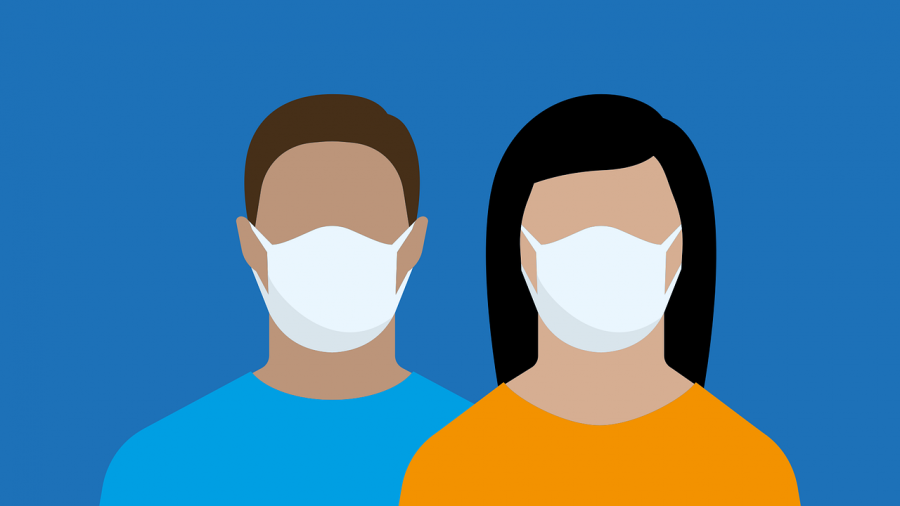COVID-19 and Mental Health
December 21, 2020
Right now, we’re in the thick of a global pandemic. COVID-19 affects almost every aspect of our lives. Many people are working or attending classes online, face masks have become essential, and almost everything we do with others has been canceled or moved online. Uncertainty in regards to how things will pan out in the future has significantly increased stress. During the pandemic, the number of people struggling with symptoms of mental health disorders has skyrocketed. Plus, for those who struggled with mental health disorders like Anxiety, Depression, or OCD previous to the virus, the pandemic can cause their struggles to escalate.
In late June, 40.9% of adults taking part in a study conducted by Monash University in Melbourne Australia reported at least one adverse mental health condition or symptom related to the pandemic. 30.9% of the participants reported symptoms associated with anxiety or depression. The study showed that the number of Americans experiencing symptoms of anxiety increased threefold, with those reporting symptoms of depression increasing fourfold compared to a study conducted around the same time the year prior. In the young adult category, participants between the ages of 18 and 24, a whopping 63% reported experiencing symptoms of anxiety and depression. However in the teenage category, a study with over 1,500 teenage participants, 70% reported that they were struggling with their mental health, with 50% of the participants reporting symptoms of anxiety, and 43% reporting struggling with depression. While this number is certainly disheartening, it’s anything but surprising. This past year, our lives have been uprooted, with many school districts switching completely to online school, not being able to see friends and family, having our favorite activities and even graduations canceled, not to mention the worry that comes from the actual virus itself.
For those with previous mental health struggles, the pandemic can be an extra roadblock in the road to recovery. Those with OCD, or specifically Contamination OCD, may lose some vital coping skills, as for many, getting sick is a common fear. Contamination OCD is a subset of OCD, which is an umbrella term covering many different specific types. Those with Contamination OCD usually struggle with fears of being contaminated by something, with the most common fears being getting sick, spreading illness to others, or both. This then causes them to act on compulsions, or unrealistic coping mechanisms, such as excessive hand washing. Those with Contamination OCD most likely feel very heightened anxiety and may lose some progress from any treatment they may be receiving due to the pandemic.
While Autism Spectrum Disorder is not in any way a mental health condition, those on the Autism Spectrum also face some unique challenges and struggles as a direct result of the COVID-19 pandemic. For example, due to the high transmission rate of the COVID-19 virus, the CDC recommends wearing a facial covering every time it is impossible to stay six feet away from others. However, for those with Autism, wearing a face mask for an extended period of time can be incredibly difficult and anxiety-inducing. As a result of having to wear a mask, some people with sensory sensitivities may face extreme anxiety as a result of the feeling of the mask covering their face. Another example of this could be that the feeling of the mask changing their airflow may cause a feeling of suffocation, which would result in panic. For those on the Autism Spectrum, having to wear a mask to get groceries or do everyday activities can cause panic attacks and sensory overload, which would most likely result in increased anxiety and worsening mental health overall.
While these times are definitely scary, and going into the unknown can be difficult, it’s important to remember that we will get through this. While it may seem daunting and never-ending, eventually we will be back to normal. Right now, many people are struggling with school, work, isolation, and mental health issues. Things will improve. This year, remember that your mental health takes precedence. Keeping yourself healthy both mentally and physically is the most important thing you can do this year. Try your best, but don’t stress out too much over school, or factors out of your control. You are strong, and you will get through this. If you’re in a crisis, there is help. If you’re in any type of mental health crisis, text HOME to 741741 to talk to a trained counselor. To talk to another teenager, text teen2teen 839863. If you’re experiencing domestic violence, call 1-800-799-SAFE (7233).






























































































































Joselyn • Jan 4, 2021 at 9:47 am
This was a great article. I loved how you added statistics to make it this article more reliable.